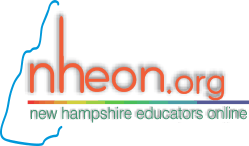Digital Learning Plan Toolkit
Formerly the technology planning toolkit, this digital learning plan toolkit provides resources and a recommended outline for district technology/digital learning committees as they create, implement and update their school or district technology/digital learning plans. New Hampshire Educational Technology and the New Hampshire Department of Education strongly encourage the development of district technology /digital learning plans that focus technology priorites towards the infrastructure necessary to promote pedagogy for empowered teaching, learning, assessing, and producing.
Digital Learning Plan Toolkit
 Guidance and Toolkits
Guidance and Toolkits





